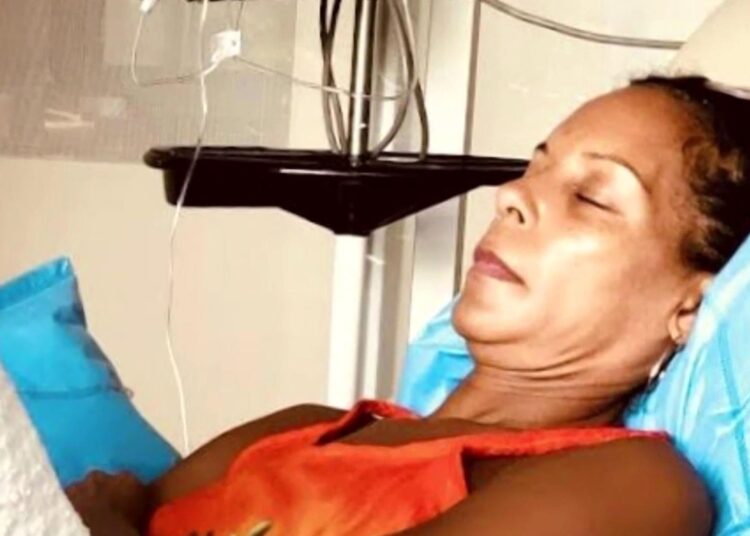Jennifer Jones broke barriers as the first African American Rockette in 1987, but after decades as a professional dancer, a cancer diagnosis threatened her life.
Jones spent 15 years doing high kicks with the famed group at Radio City Music Hall before retiring in 2002. She also danced on Broadway stages and owned her own dance studio. Eating healthy and exercising were a part of her everyday life, and she said that she thought of herself as “healthy” until 2018.
At age 50, Jones began experiencing symptoms of colorectal cancer.
“I felt bloated, gassy, and I thought I should go for a colonoscopy,” Jones said.
After the procedure was complete, her doctor delivered some unexpected news.
“She came into the room and she said ‘You have cancer, and you have about five years to live,'” Jones said. “I cried. I felt like I was doing everything right.”
After seeking out a second opinion, she was diagnosed with stage 3 colorectal cancer and began an aggressive course of treatment, including surgery and eight rounds of chemotherapy. For weeks, she kept the diagnosis to herself.
Dr. Credek McFadden, a board-certified colon and rectal surgeon in Greenville, South Carolina, said that he hopes to one day see colon cancer be as talked about as other diagnoses.
“I would love to have a point where we can have the conversation about colon cancer, like we do about breast cancer,” McFadden said. “People don’t want to talk about their bowel movements.”
In January 2019, Jones was declared cancer-free.
Colon cancer diagnoses have been on the rise: It’s second-deadliest cancer in the United States for both men and women combined, despite being one of the most preventable. Recently, the recommended starting age for colorectal cancer screenings like the colonoscopy Jones underwent was lowered from 50 to 45. McFadden said that there has been a “2% per year increase in younger people being diagnosed” with colorectal cancer, leading to the changes in guidance.
John Kastanis is among those younger people who have been diagnosed with the disease: In 2018, he was diagnosed with Stage 3 colon cancer at age 44. He was “shocked” by the diagnosis, and looking for support, he joined the Colorectal Cancer Alliance’s Buddy Program, where survivors of or caregivers of those with colorectal cancer can connect with people currently undergoing treatment or other survivors. Jones and Kastanis were paired together.
McFadden said that these programs can really help someone through a tough time.
“Having that source of companion, having that person call and say ‘Listen, I had this treatment today, and now I’m having this problem, did she have this problem?’ It’s very comforting,” McFadden said.
In fall 2019, Kastanis was declared cancer-free, something he credits to his friendship with Jones. However, the pair only connected digitally, through emails, calls, and texts until TODAY connected them via Zoom for a meeting.
“You went through hell and back just like I did,” Kastanis said. “I mean, we were just two total strangers. … And you were helping me and I really appreciate that. … I think you and I are friends for life.”
Jones said that sharing her experience had been “very therapeutic” as well. Kastanis joked that the two could do a dance number when it was safe to meet in person.
“We’ll do a Rockette kick line,” Jones said, laughing.
Source: Kerry Breen | Today





Oh my God, may God strengthen and heal her.
All glory to God for healing her.
Her healings shall be permanent in Jesus name.Amen.